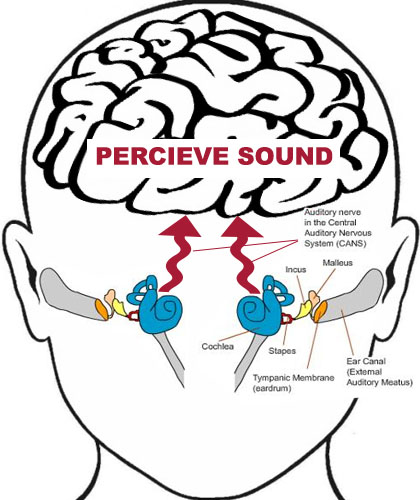

Experts debate whether heredity or environment - or both - are responsible for the condition. The drug didn’t improve auditory processing, despite improving children’s performances on a standard test that measured attention and impulsivity.ĭo you think your child’s poor performance in school and his social awkwardness may be caused or exacerbated by APD? Here are the facts to help you determine whether this is the case and which treatments may help. “Children with ADHD may be poor listeners and have difficulty understanding or remembering verbal information,” explains Teri James Bellis, author of When the Brain Can’t Hear, but “it is the attention deficit that is impeding their ability to access or to use the auditory information that is coming in,” not the processing of it in the brain.Ī study conducted at the State University of New York in Fredonia looked at the effects of Ritalin on auditory processing in children with both ADHD and APD.
Adhd auditory processing delay movie#
My daughter, who has APD, plugs her ears before the movie previews, in case the sound gets loud. In fact, some sounds can “hurt” - a blender, a train engine, police sirens. But many children with APD are exquisitely sensitive to sound. Children with APD, on the other hand, usually don’t have difficulty focusing and paying attention in a quiet space. How can a parent tell if his or her child has APD? In general, children with ADHD exhibit inattention, distractibility, and hyperactivity in any environment. Experts continue to disagree whether APD is a manifestation of ADHD, or if they are separate disorders. Studies suggest that 50 percent of those diagnosed with ADHD may also have APD. Symptoms of the two disorders often overlap. Just as APD can affect a child’s ability to focus, so an attention deficit can affect auditory processing. Combine APD with ADHD, and a child’s abilities to listen and remember are severely compromised. It’s like listening to the radio with interference from other stations garbling the reception.Ī child with the disorder typically tries so hard to understand what’s being said that she forgets parts of the conversation or doesn’t pick up on the nuances or subtleties of the words. The echo in a gymnasium or the hum of the air conditioner in the classroom interferes with the conversation at hand. Some children with APD also have trouble screening out background noise, so they pick up bits of surrounding sounds. Rather, her brain perceives the sounds incorrectly, affecting the child’s ability to distinguish between similar sounds (da and ga, for example). An APD child doesn’t have difficulty hearing or selective hearing - in fact, in most cases, her hearing is good. Roughly 7 percent of children have some type of auditory hypersensitivity or processing difficulty.īut what is it exactly? At its most general, APD is a glitch in the brain’s ability to filter and process sounds and words. While APD isn’t as well known as ADHD, it is becoming increasingly common. Henry does have ADHD, but an audiologist has also diagnosed him with something called auditory processing disorder (APD). This sounds like a classic profile of attention deficit disorder ( ADHD or ADD), right? Well, yes and no.


When he’s doing homework, she says, “He uses every little sound as an excuse to delay getting down to work.” Even the dishwasher distracts him, despite the fact that the kitchen is on the other side of the house. He gets cranky and lashes out at classmates who “are yelling at me and telling me what to do.” His mother has noticed similar behaviors at home. Henry is fidgety and distractible during classroom activities, according to his second grade teacher. During gym class, he’s hypersensitive.


 0 kommentar(er)
0 kommentar(er)
